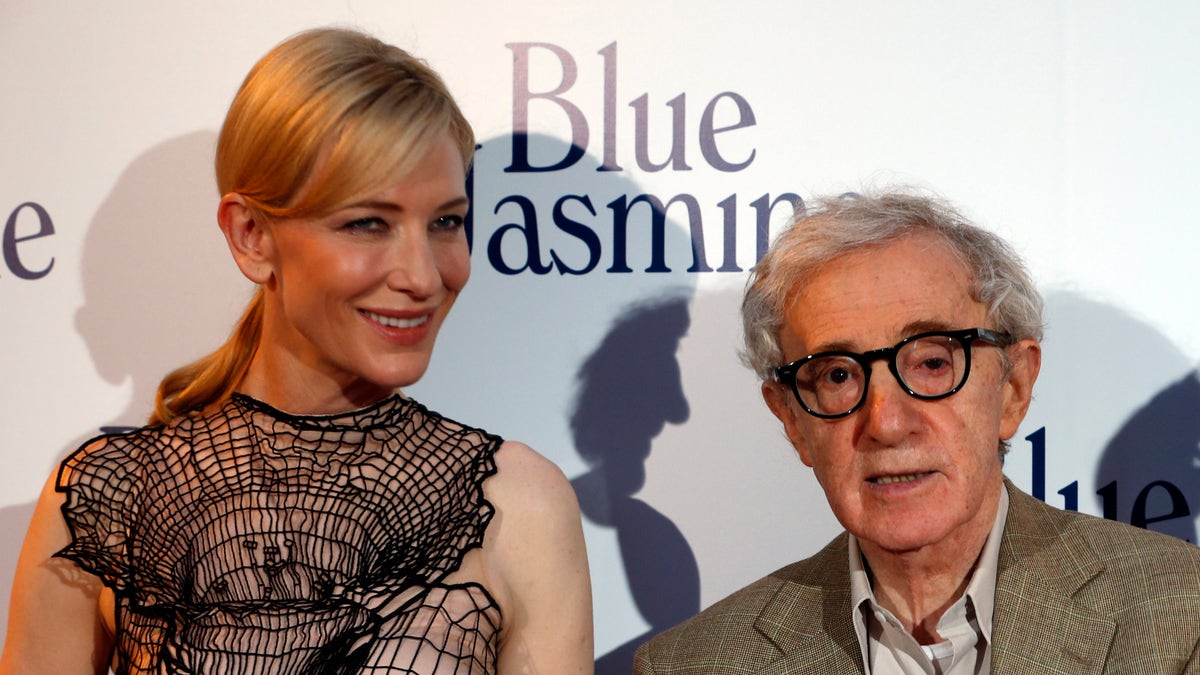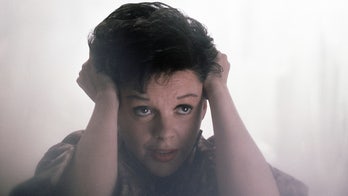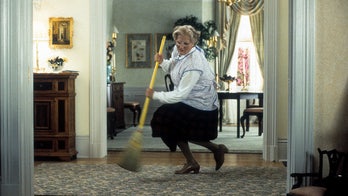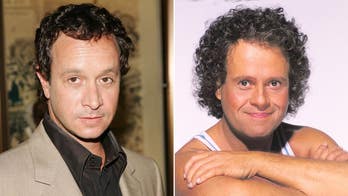
August 27, 2013. Woody Allen (R) and Cate Blanchett pose during the premiere of the film "Blue Jasmine" in Paris. (Reuters)
With Oscar voting scheduled to begin next Friday, the 1992 accusations of molestation against “Blue Jasmine” director Woody Allen couldn’t have resurfaced at a worse time according to Variety.com.
The Sony Classics feature is nominated for three Academy Awards, including Best Actress (Cate Blanchett), Original Screenplay (Allen) and Best Supporting Actress (Sally Hawkins), leaving several pundits asking whether awards voters will opt against the accused filmmaker and his leading ladies. The short answer? Probably not. Still, the Woody Allen controversy underlines the fact that Hollywood awards, and the ensuing global attention, can push a lot of buttons and stir up discussions that can be enlightening, distressing, or both.
Considering the claims of molestation, questions about something like an Academy Award may seem trivial and disrespectful. But in fact, awards have been a key element of this week’s discussion as 28-year-old Dylan Farrow, in her open letter published by the New York Times, addressed the anguish she felt at Allen’s Golden Globe honor and Oscar original-screenplay nomination. She also wondered how some people could in good conscience work with Allen, pointing the finger at six celebrities, including Cate Blanchett, who recently won a Golden Globe for her acclaimed performance.
Let’s make something very clear: Blanchett should not be part of this discussion. This is obviously a painful family situation but Blanchett is simply an actress who worked with a filmmaker who was never charged with a crime. Legally, she and everyone else associated with “Jasmine” did nothing wrong. But the Internet and op-ed pieces prove that this is not a legal argument, but an emotional one.
Many in the Court of Public Opinion believe Allen is guilty. By reading the relentless opinions on the Web, it’s easy to believe the entire world is engaged in a heated Woody Allen discussion. And since the Internet didn’t really exist in 1992, you get the feeling that people have been bottling up their reactions to this for a long time. But the Internet doesn’t always reflect the preoccupations of everyone in the world, including Academy voters.
Some have cited the fact that the Academy of Motion Picture Arts & Sciences gave an Oscar to Roman Polanski for 2002′s “The Pianist.” Could the same happen for Allen? It’s a limited comparison but an interesting point: Allen was never charged, but Polanski was charged and served some time but fled the country before he could be sentenced. Academy voters ultimately proved they were willing to cast ballots for Polanski’s achievement in directing, not for the person.
Also, Oscar voters probably decided a long time ago what they think of Allen. Awards screeners were sent in December and he and Sally Hawkins (up for supporting actress) are not generally considered front-runners. But Blanchett is, having won every award in the book. She may lose a few votes for guilt by association. She may win a few votes for sympathy. But Academy voters will likely cast ballots in every category based on the work, not on outside considerations, so Blanchett should undoubtedly emerge OK..
The Oscar-winning actress has no doubt had a tough week, however. She attended the funeral of friend and colleague Philip Seymour Hoffman (they both appeared in the 1999 “The Talented Mr. Ripley”) on Friday and had to cancel appearances on several TV talk shows to promote “The Monuments Men,” which opens Friday. Before then, she handled herself quite well, deflecting questions about Allen by reminding that this is a family matter. The TV cancellations were the right move. It would be disingenuous to talk about “Monuments Men” and ignore Allen and Hoffman. On the other hand, it would be tough to talk about complex issues in fast sound bites before the commercial break.
It will also be interesting to see how Academy voters respond to Denmark’s foreign-language entry. “The Hunt” (starring an excellent Mads Mikkelsen) is a thoughtful and troubling film about a man who is ostracized after he’s accused of molesting a young girl.
Molestation can push people’s buttons more than most other crimes. Farrow’s pain seems genuine. But under U.S. law, a man is innocent if he’s never been charged. So come to your own conclusions about what did or did not happen in 1992.
Like it or not, awards, particularly Oscar, are part of our civilization’s current mythology. The nominees, the ceremony, the global attention: All can touch nerves, and people can channel their hopes and anxieties through these events. In some cases, that’s a good thing. At other times, it brings up a range of darker emotions.
This might be the last Big Talking Point associated with Oscar this season. But in the past, a lot of hot-button issues have surfaced in the week leading up to Oscar, so fasten your seat belts. We still have a ways to go before that final envelope is opened March 2.






